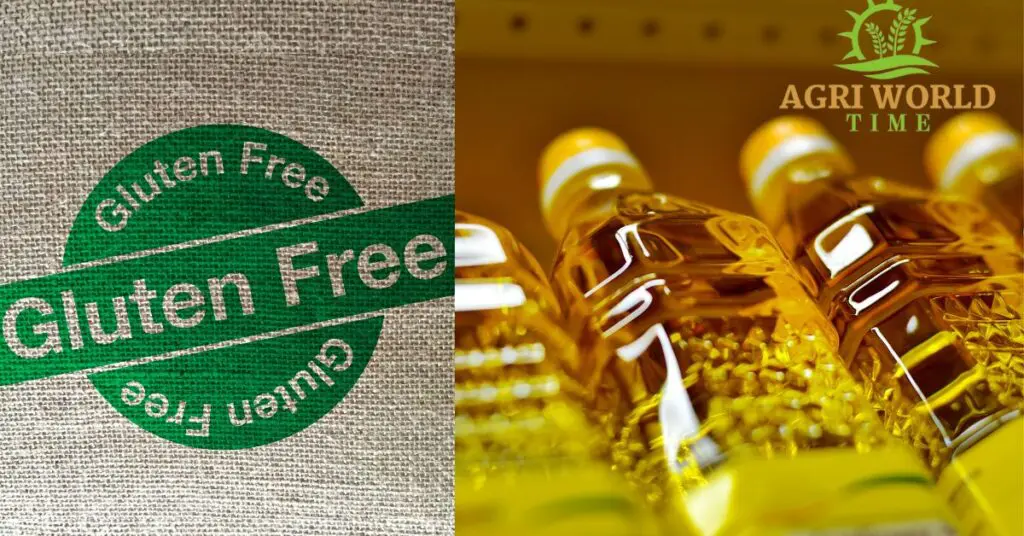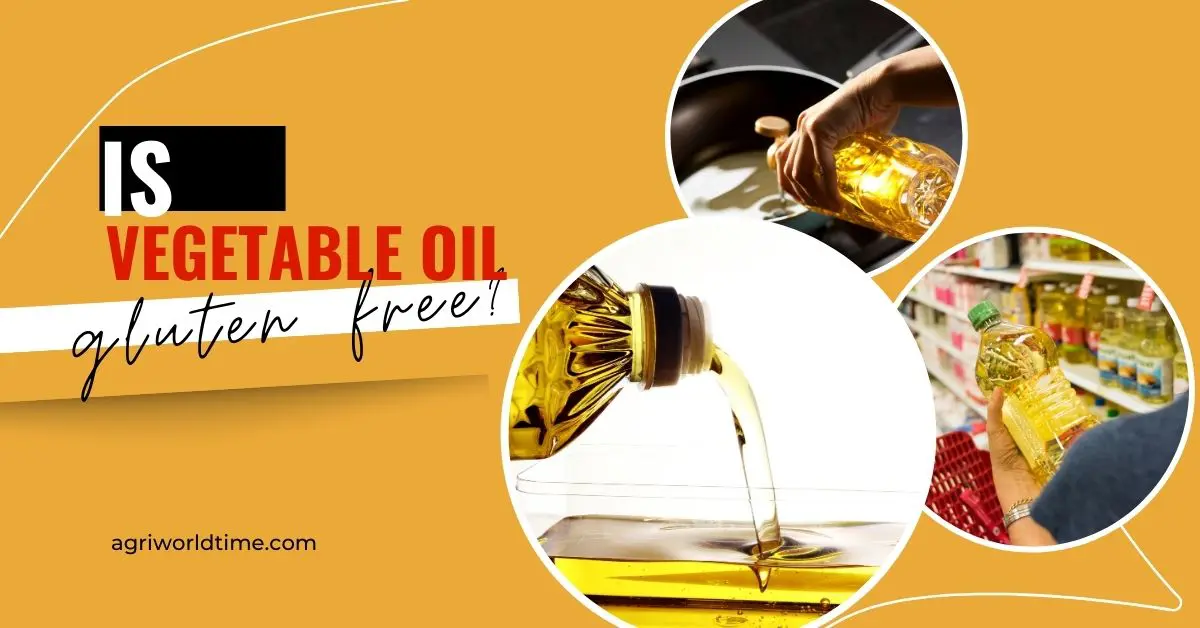Welcome to our blog, where we dive into “Is vegetable oil gluten free”. For individuals with celiac disease or gluten sensitivity, maintaining a gluten-free diet is essential for their health and well-being. This article will explore the relationship between vegetable oil and gluten. It will provide you with accurate information to make informed choices about your dietary needs.
Misconceptions Surrounding Gluten in Everyday Products: Shedding Light on Vegetable Oil
In today’s world, gluten-free diets have gained immense popularity. Many people are striving to adopt a gluten-free lifestyle for various reasons. However, there are often misconceptions about gluten hiding in unexpected places, such as everyday cooking oils like vegetable oil. This blog post aims to shed light on the truth behind these misconceptions. We’ll separate fact from fiction regarding vegetable oil and its gluten content.
Join us as we delve into gluten, vegetable oil and how they intersect. By the end of this article, you will clearly understand whether vegetable oil is indeed gluten-free and how it can fit into your gluten-free lifestyle. Let’s explore the truth together!
Gluten: What It Is and Where It’s Found
Gluten is a group of proteins found in grains such as wheat, barley, and rye. It provides elasticity and structure to the dough, giving bread and other baked goods their characteristic texture. Gluten is harmless for most people. Individuals with celiac disease or gluten sensitivity must strictly avoid gluten-containing products to prevent adverse health effects.
In addition to its presence in grains, gluten can hide in various processed foods and ingredients. Common sources of gluten include:
Wheat-based Products:
This includes bread, pasta, cereals, flour, and baked goods.
Barley:
This grain is often used in malted products, including malted beverages and malt vinegar.
Cross-Contamination:
Foods processed in facilities that handle gluten-containing ingredients may have traces of gluten.
It is crucial for individuals following a gluten-free diet to read labels carefully. Gluten can be present in unexpected food items such as sauces, dressings, and processed meats.
Understanding where gluten is commonly found lays the foundation for examining its presence or absence in vegetable oil. Let’s explore this further to determine whether vegetable oil is gluten-free.
Vegetable Oil: Origins, Processing, and Composition
To understand the relationship between vegetable oil and gluten, it’s essential to have a basic understanding of vegetable oil itself. Vegetable oil is a type of cooking oil. It is derived from various plant sources, such as soybeans, corn, canola, sunflower seeds, or olives. It is widely used in culinary applications due to its neutral flavor, high smoke point, and versatility.
The production of vegetable oil involves several steps. It includes extraction, refining, and sometimes hydrogenation. Seeds or fruits of the chosen plants are processed to extract oil. It is then refined to remove impurities and enhance its stability. The resulting oil is typically straightforward, odorless, and has a liquid consistency.
Debunking the Myth: Vegetable Oil and Gluten
One common misconception is that vegetable oil contains gluten due to gluten-containing plant sources like wheat or barley. However, the processing methods used to extract and refine vegetable oil significantly reduce or eliminate gluten traces in the original plant material.
Gluten is a protein that does not dissolve in oil. It primarily remains in the solid components of grains. During vegetable oil’s extraction and refining process, the proteinaceous components, including gluten, are separated and removed, leaving behind the pure oil. Therefore, the final product, such as refined vegetable oil, is generally considered gluten-free.
It’s important to note that cross-contamination can occur during the manufacturing process if the equipment used in processing is shared with gluten-containing products. However, reputable manufacturers have strict protocols and quality control measures to prevent cross-contamination. They ensure their vegetable oil remains gluten-free.
In the next section, we’ll delve deeper into gluten content and potential cross-contamination risks in vegetable oil production to comprehensively understand the topic.

Vegetable Oil Production and Gluten Cross-Contamination: Unveiling the Truth
Regarding vegetable oil production, measures are in place to minimize the risk of cross-contamination with gluten-containing ingredients. Reputable manufacturers typically have dedicated production lines for gluten-free products. They ensure no contact between gluten-containing grains and the vegetable oil production process.
Moreover, modern processing techniques, such as solvent extraction and refining, are designed to separate and remove impurities. It includes any residual proteins like gluten. These methods aim to extract pure oil while minimizing the presence of other substances.
However, it is essential to consider the possibility of cross-contamination during production. Manufacturers follow strict protocols to prevent cross-contact, including thorough cleaning procedures and allergen control measures.
Some vegetable oil brands obtain gluten-free certifications from reputable third-party organizations to provide additional assurance. These certifications verify that the product meets strict gluten-free standards and undergoes regular testing to ensure compliance.
While the likelihood of gluten contamination in vegetable oil is generally very low. Individuals with severe gluten intolerance or celiac disease may opt for oils with gluten-free certifications or those explicitly labeled gluten-free to minimize potential risks.
In the next section, we’ll explore reliable ways to identify gluten-free vegetable oil brands and decipher labels to make informed choices for your gluten-free lifestyle.
Gluten-Free Certifications and Vegetable Oil Brands: Reliable Labels and Trustworthy Products
Individuals following a gluten-free diet should look for reliable indications of gluten-free status when shopping for vegetable oil. While vegetable oil itself is typically gluten-free. It’s essential to ensure that the manufacturing process and any potential cross-contamination risks have been addressed. Here are some key aspects to consider:
Gluten-Free Certifications:
Look for vegetable oil brands that have obtained gluten-free certifications from reputable organizations. These certifications ensure the product has undergone rigorous testing and meets strict gluten-free standards.
Third-Party Testing:
Some brands may voluntarily test their products for gluten, even if they don’t carry specific certifications. This information can often be found on the brand’s website or product packaging. Choosing oils tested for gluten can provide additional peace of mind.
Read Labels Carefully:
Reading the product labels is crucial, even if a vegetable oil brand lacks gluten-free certification. Look for clear indications of gluten or allergens on the ingredient list. If the label explicitly states “gluten-free,” it provides reassurance that the manufacturer has taken steps to ensure the product’s safety.
Research and Brand Reputation:
Researching vegetable oil brands can help you identify those prioritizing gluten-free practices. Look for brands with a reputation for quality, transparency, and adherence to gluten-free standards.
Customer Reviews and Recommendations:
Reading customer reviews and seeking recommendations from individuals with similar dietary needs can provide valuable insights into specific vegetable oil brands successfully used in gluten-free cooking.
By considering these factors and making informed choices, you can confidently incorporate gluten-free vegetable oil into your culinary endeavors while maintaining your gluten-free lifestyle.
The following section explores how vegetable oil can seamlessly incorporate into a gluten-free diet. We’ll also provide tips and recommendations for cooking and baking.
Gluten-Free Cooking with Vegetable Oil: Tips and Recommendations
Incorporating vegetable oil into a gluten-free diet is relatively straightforward. It can enhance the flavor and texture of your culinary creations. Here are some tips and recommendations for cooking and baking with gluten-free vegetable oil:
Use it as a Cooking and Frying Oil:
Vegetable oil’s high smoke point makes it suitable for various cooking methods, including sautéing, stir-frying, and deep-frying. It adds a neutral taste to your dishes without altering their flavors.
Make Homemade Salad Dressings:
Create delicious gluten-free dressings by combining vegetable oil with vinegar, citrus juice, herbs, and spices. This allows you to control the ingredients and customize flavors to suit your preferences.
Blend it into Smoothies and Dressings:
Add a tablespoon of vegetable oil to your smoothies or dressings to incorporate healthy fats. It can help enhance the creaminess and mouthfeel of your creations.
Bake with Confidence:
Vegetable oil can be used as a substitute for butter or other oils in gluten-free baking recipes. It helps to keep baked goods moist and tender. When baking, refer to gluten-free recipes or adapt regular recipes by replacing the oil as needed.
Check Recipes and Adapt as Necessary:
Ensure that your chosen recipes are gluten-free or can be easily modified. Look for gluten-free recipe sources, such as reputable gluten-free cooking blogs, websites, or cookbooks, to discover a wide range of culinary inspiration.
Experiment with Different Varieties:
Explore the world of vegetable oils by trying different varieties, such as olive oil, canola oil, or avocado oil. Each type has unique flavors and nutritional profiles, adding diversity to your gluten-free cooking.
Remember, vegetable oil is generally gluten-free. Always double-check labels, especially if you’re using flavored or specialty oils that may contain additional ingredients. Following these tips and recommendations, you can confidently incorporate gluten-free vegetable oil into your cooking repertoire and enjoy delicious meals while maintaining a gluten-free lifestyle.
Conclusion:
Vegetable oil is generally considered gluten-free, as the extraction and refining processes effectively remove or minimize the presence of gluten. While cross-contamination risks may exist. Choosing reputable brands, reading labels carefully, and opting for gluten-free certifications can provide additional assurance. With this understanding, individuals following a gluten-free diet can confidently incorporate vegetable oil into their cooking and enjoy its versatility as a gluten-free kitchen staple.
FAQs
Can I use vegetable oil in gluten-free baking?
Yes, vegetable oil can be used in gluten-free baking as a substitute for butter or other oils. It helps keep baked goods moist and tender. Just ensure that other ingredients used in the recipe are also gluten-free.
Are there specific vegetable oil brands that are gluten-free?
Various vegetable oil brands offer gluten-free options. Look for brands with gluten-free certifications or those explicitly labeled as gluten-free. Additionally, researching, reading customer reviews, and seeking recommendations can help you identify trustworthy gluten-free vegetable oil brands.
Can vegetable oil be used for frying gluten-free foods?
Yes, vegetable oil is commonly used for frying gluten-free foods. Its high smoke point makes it suitable for frying at higher temperatures without compromising the flavor or texture of gluten-free dishes.
How can I ensure that my vegetable oil is gluten-free?
To ensure that your vegetable oil is gluten-free, read product labels carefully. Look for clear indications of gluten or allergens on the ingredient list. You can also choose vegetable oil brands with gluten-free certifications or those that undergo regular testing for gluten content.
Can cross-contamination occur if I use the same vegetable oil bottle for gluten-free and gluten-containing foods?
It is generally recommended to use separate bottles of vegetable oil for gluten-free and gluten-containing foods to avoid cross-contamination. If you need to use the same bottle, ensure thorough cleaning of utensils and surfaces to minimize cross-contact risk.
I have celiac disease. Should I be concerned about vegetable oil?
While vegetable oil is generally safe for individuals with celiac disease, it’s essential to be aware of potential cross-contamination risks during production. Choosing vegetable oil with gluten-free certifications or labeled gluten-free can provide added reassurance.

